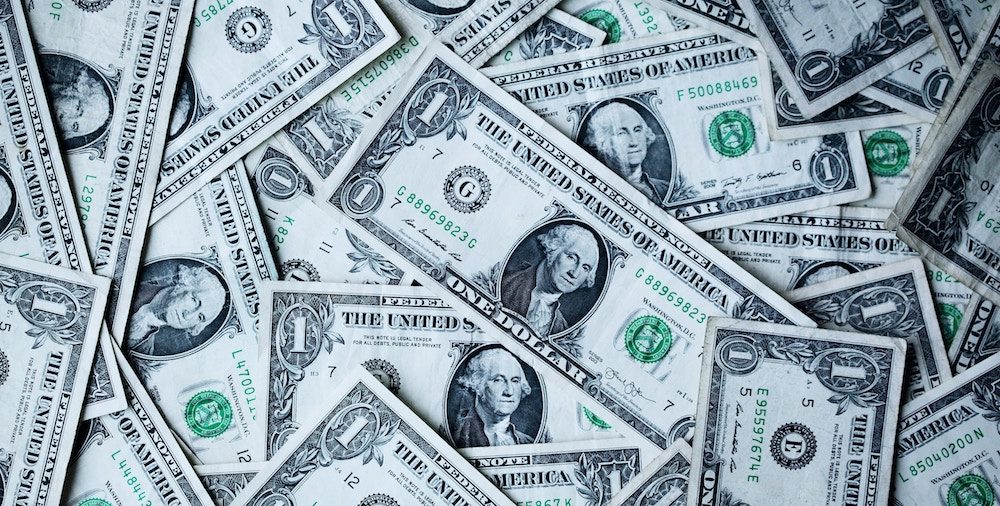I always have said that young professionals should ‘save now, while we can’. I get that it’s not super common, or easy for someone to be saving so much of their income, but I’ve managed to do so for the past few years. It didn’t happen right away after getting my first real job, but I started slow and built up my savings rate over time. It’s been an incredible blessing that I’ve been able to save so much, and I’ve been able to lay a strong financial foundation for me and my family to grow off of. As it’s a fairly unique situation to be saving this much, I thought I’d open up and share both the how, and the why.

How I got to be able to
Saving 33% is pretty intense, and a lot of your other financial goals have to be checked off in order to do so. Right out of college (after my short stint at Captain Dave’s Army Navy Surplus), I wasn’t able to save that much. I had moving expenses to cover, a rent on a solo apartment to pay for, and social expenses that come with meeting new friends in a new city. I wasn’t making a ton right out of college, but was making a respectable amount. I started slowly, and starting hitting some of the low hanging fruit financial goals. I was only contributing 2% to my retirement at the time, the right amount to get the full match (free money) from my employer. I also needed to build up my emergency fund, first getting to $1,000, then 3 months of expenses, then finally to 6 months. I had a lot of purchases in that first year, as I transitioned from college to the working world. It was important that I gave myself grace during this time and not be too hard for not saving a ton of money.
Over time, once things settled down a bit and I was making more money (blessed to have received an annual raise at my first job), I found more room in my budget to save. With each raise, I tried to only marginally increase my personal expenses, while trying to majorly increase my savings rate. I figure if I had survived the previous year on my salary, that it should be no problem to continue doing so, even with a raise. As such, I increased my savings rate each year, and saw my savings/investment accounts grow.
Two important takeaways if you don’t feel like you can save a lot: give yourself grace and understand that things will get better and you’ll be able to save more. Secondly, start good habits of saving, even a little. If you can manage a little bit of money, you can certainly manage a lot of money. Even when I was making a little I was still saving, and those good habits I formed followed me when I started making more.
How I save 33%
Just to prove that I do save 33%, let me break it down into actual percentages. Of my paycheck: 9% goes into my retirement account (I get a 6% match at work, which makes 15%, which is the recommended savings amount for retirement). I also contribute 10% into our employee stock purchase program. In my regular budget, I save 14% for general savings and a car fund (I like to pay cash for my cars). There you go, 33% of my salary goes into savings. That doesn’t include mortgage payments, but in a sense I’m building equity in my house so perhaps that could count to.
You’ll notice that over half of this savings amount is taken out before I ever get my paycheck, via retirement and ESPP (employee stock purchase program) from work. Money not seen is money not missed, so I almost forget sometimes that I’m automatically saving 19% out of my paycheck. I recommend this approach as it’s an easy, automatic way to save that won’t tempt you to spend that money instead as it’s auto-pulled out each paycheck.
This 33% amount used to be a little higher actually, I think it used to be 40%, but our current house is a little bigger (with a growing family, i.e. Baby Money Finance) and the mortgage payment is higher. I’m still very proud of my savings rate!
Why I save 33%
As mentioned at the beginning of the post, I save so much now because I know it’ll never be easier in life. I’ve actually decreased my savings rate already (from 40% pre bigger house). Young professionals are in an incredible spot in their life, earning a lot without a lot of responsibilities (i.e. kids, lots of insurance, mortgages, etc). While of course I recommend enjoying life and spending some of that surplus money, I would encourage young professionals to save a larger amount at this time of their lives. Compound interest is a powerful force that saving now lets you take advantage of. 10% interest on $100 earns you $10. Reinvesting that $10 into the pot will yield $11 next time around (10% of $110). Even a little saved consistently now invested over a long period of time will grow. With time on our side, it’s important to have all that we can set aside so we can grow our money!
As my life and family continue to grow, I’ll have more responsibilities to attend to. It’s certainly not a bad thing, as I love Baby Money Finance and am so happy having him in our lives. However, diapers aren’t cheap, and saving for his college fund takes money and sooner or later he’ll eat real food. As part of our growing family, our expenses will grow and I doubt I’ll ever again be able to save 33%. However, I’ve saved 33% for many years now, and have a good foundation in place with money in a savings account and investment account that’ll continue to grow even while I’m not saving as much!
Saving and investing is an important part of preparing for your financial future. Although it may seem difficult, saving a lot in your younger years can lay a great financial base for you that will give you a great heads start towards that future!


 Personal Finances are certainly top of mind for many of us. If you're looking to get serious about improving your financial situation, we've got lots of great materials all over this site! Additionally, we realize that there's a lot of noise out there, and so we created PERSONAL FINANCIAL GUIDES focused on topics with all the info you need, and without any of the noise/ads/clickbait.
Personal Finances are certainly top of mind for many of us. If you're looking to get serious about improving your financial situation, we've got lots of great materials all over this site! Additionally, we realize that there's a lot of noise out there, and so we created PERSONAL FINANCIAL GUIDES focused on topics with all the info you need, and without any of the noise/ads/clickbait.
YMF – Since you put 9% in retirement but only get a 6% match, do you worry about maximizing your annual contribution before the end of the year. If so, I would think you may potentially leaving match dollars on the table. What are your thoughts on that?
Thank you for the amazing blog! Long time reader here.
Hey John,
Thanks for the kind words. And yes, you’re right, it’s certainly a consideration to be had. I should review my contributions as I get closer to the $19,000 max. I would not want to hit that too early and stop getting the free money via the match. Appreciate the comment!